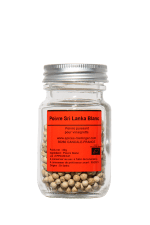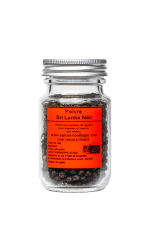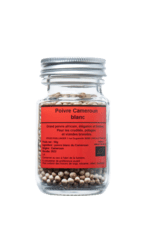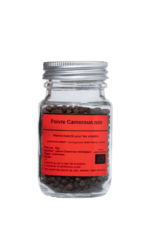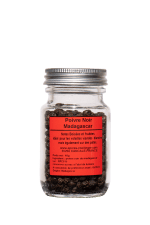Pepper
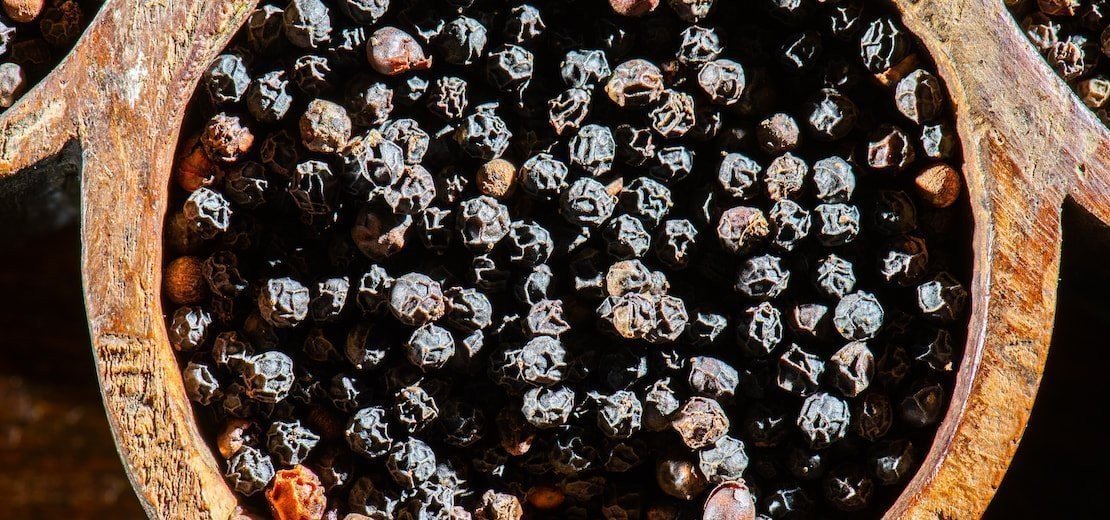
-
India
-
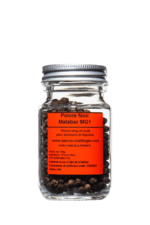
Malabar Black Pepper MG1
- €5.90
-
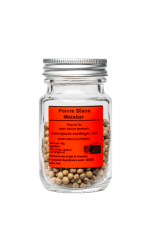
Malabar White Pepper
- €7.50
-
Rare spices
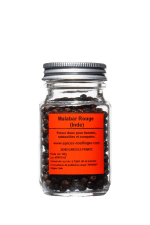
Malabar Red Pepper
- €7.20
-
Rare spices
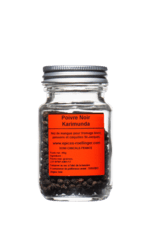
Karimunda Black Pepper
- €5.90
-
Rare spices

Karimundi Black Pepper
- €6.50
-
Rare spices
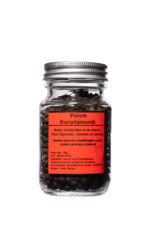
Kuriyilamundi Black pepper
- €6.50
-
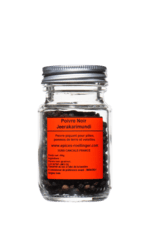
Jeekarimundi Black Pepper
- €6.50
-
Rare spices
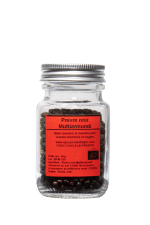
Muttiarmundi Black Pepper
- €6.50
-
Rare spices
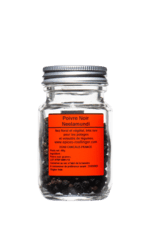
Neelamundi Black Pepper
- €6.50
-
Rare spices
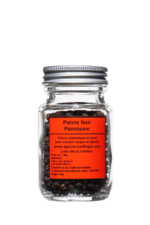
Panniyoor Black Pepper
- €6.50
-
Rare spices
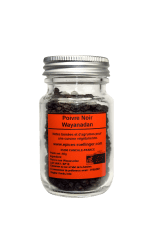
Wayanadan Black Pepper
- €7.30
-
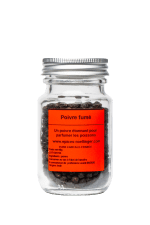
Smoked Black Pepper
- €8.30
-
Rare spices
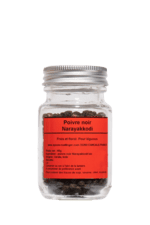
Narayakkodi Black Pepper
- €6.50
Cambodia
-
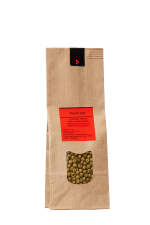
Green Peppercorns
- €7.10
-
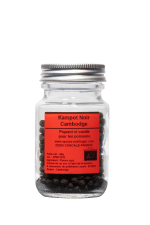
Kampot Black Pepper
- €7.70
-
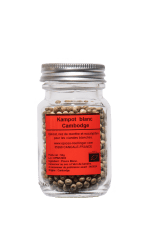
Kampot White Pepper
- €10.40
-
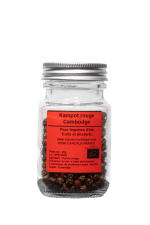
Red Kampot Pepper
- €8.50
-
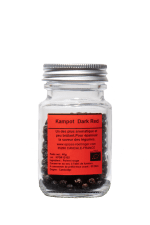
Kampot Dark Red Pepper
- €8.60
-
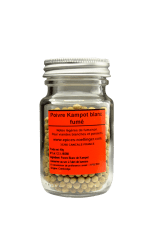
Smoked White Kampot Pepper
- €11.60
-
New harvest
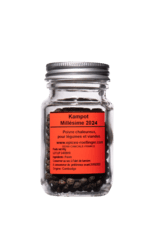
Kampot pepper vintage 2024
- €8.50
Sri Lanka
Vietnam
-
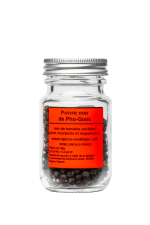
Phu Quoc Black pepper
- €6.50
-
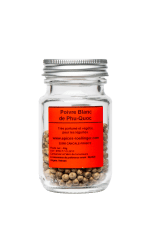
Phu Quoc White Pepper
- €10.10
-
Rare spices
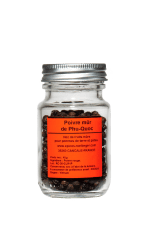
Phu Quoc Ripe Red Peppercorns
- €7.30
Malaysia
Cameroon
Madagascar
-
Pepper
Pepper (Piper nigrum) is a flowering vine from the Piperaceae family. The pepper tree is an epiphytic climbing vine with bisexual flowers. The plants start bearing fruit after three years. Pepper vines sometimes grow up to ten metres in height and produce clusters of drupes that must be harvested by hand.
The same fruit can be used to produce four types of peppercorns, depending on how it is prepared.
- Green pepper is harvested before maturity when the drupes are still green.
- Black pepper is also harvested green, though at a later stage of maturity, and is immediately laid out to dry and darken in the sun.
- White pepper is the inside of fully ripened pepper berries that have been soaked and their outer layer removed, leaving only the white peppercorn.
- Red pepper is peppercorn picked at an advanced stage of maturity.
Black pepper is for us the most genuine and feral. The land of origin of this king of spices is to be found in the forests of Kerala, in southern India. It is here that one can find the greatest diversity of endemic botanical varieties, such as Jeerakarimundi, Neelamundi and Panniyoor.
Each variety has its own unique organoleptic properties, from the most pungent to the most fragrant, fruity or woody.
